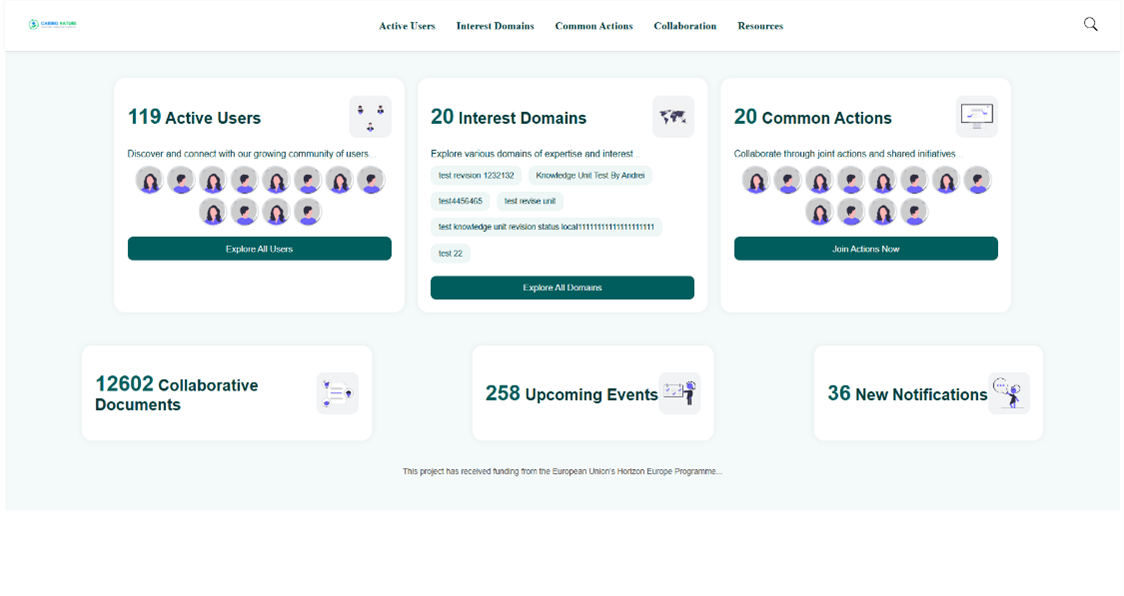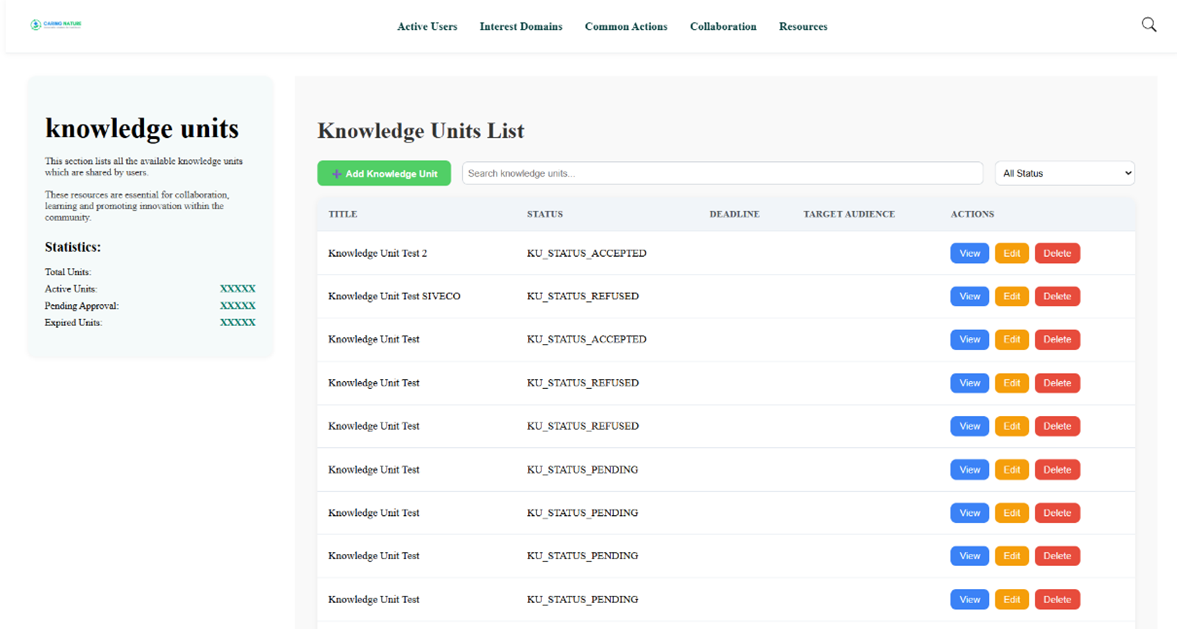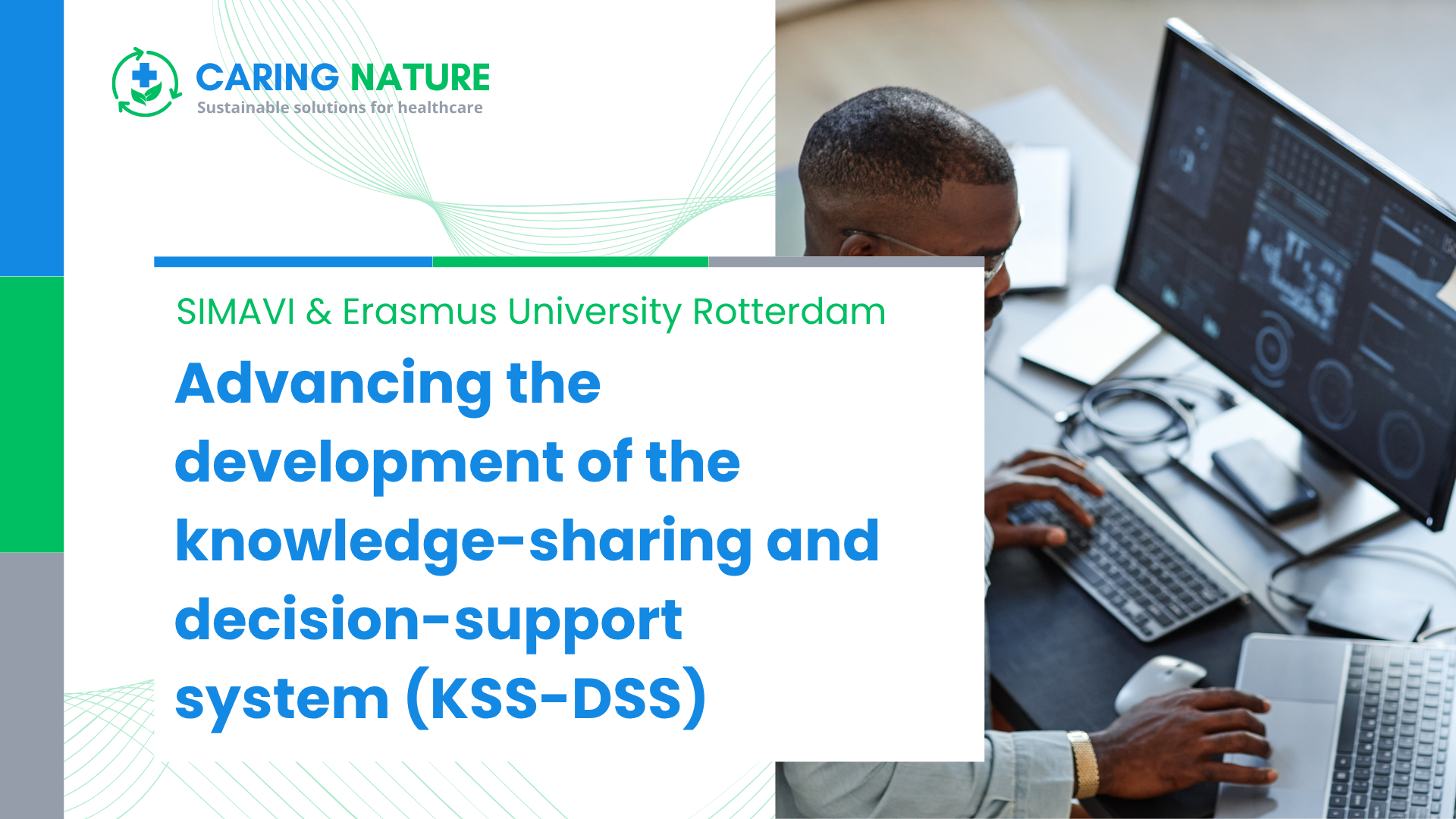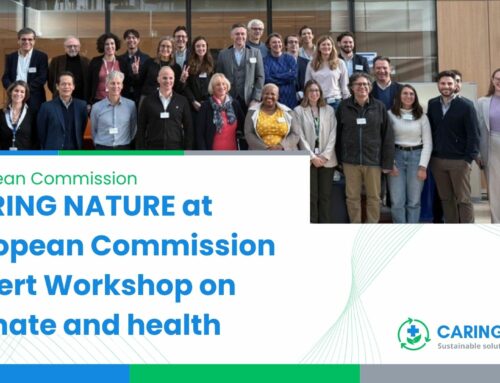The CARING NATURE (CN) knowledge-sharing and decision support system (KSS-DSS) represents a significant advancement in integrating research with practical implementation within healthcare systems. This innovative solution is built around an online platform that aims to include a literature repository, e-learning modules, case studies, a community of practice, and a stakeholder network.
A key feature of this solution is user registration, which promotes to facilitate targeted networking and collaboration. Data analysis from user interactions will inform future improvements, enhancing the platform’s effectiveness. The Knowledge Sharing System (KSS) offers functionalities ranging from Information Sharing to Collaboration and Co-Creation, including Conferences and Group Discussions with Moderated Access.
Key features of the KSS
The Knowledge Sharing System (KSS) integrates several key features designed to enhance user experience, collaboration, and information management across medical and surgical specialties. A modular dashboard provides tailored, role-based access to relevant content, ensuring users see information specific to their needs. The platform includes comprehensive user management with full CRUD (Create, Read, Update, Delete) functionality, enabling seamless control over user data. Interest domains allow for clear categorization based on medical and surgical specialties, while the Knowledge Units offer a structured repository for storing and interacting with data, information, and knowledge tied to those domains. These units support real-time editing, advanced filtering, and searching via user-friendly modal interfaces. The Joint Actions feature supports collaborative initiatives through detailed project pages enriched with metadata such as objectives, participants, and deliverables, with form-based creation and editing tools that include validation controls. Lastly, an interactive events calendar, built on FullCalendar, allows users to create, edit, and manage events via modals, with support for linked content like attachments, comments, and participant lists, fostering coordination and engagement across the platform.


Essential for the completion of the KSS is the Decision Support System (DSS), which employs both goal-oriented and task-oriented methodologies. This structured approach aims to improve clinical outcomes while optimizing resource allocation by reducing redundancy and enhancing coordination among healthcare professionals. By integrating domain and task ontologies within DSS frameworks, decision-making processes are aligned with institutional goals and effectively address specific operational tasks. This enhances usability, boosts efficiency, and contributes to the long-term sustainability of healthcare practices.
Key features of the DSS
The CN DSS is designed to bridge research with practical implementation, applying advanced decision support methodologies to enhance environmentally sustainable practices, improve effectiveness, and ultimately lead to better patient care and streamlined operations. Its structure is based on an integrated approach combining life cycle assessment tools with sustainable finance models and sustainability reporting frameworks aligned with European and international standards, in accordance with the Corporate Sustainability Reporting Directive (CSRD).
The DSS consists of four sub-components: Environmental Life Cycle Assessment (E-LCA), Social Life Cycle Assessment (S-LCA), Life Cycle Costing (LCC), Sustainable Finance Evaluation Model (SFEM), and Sustainability Reporting in accordance with CSRD. As a web-based application, the DSS operates on three levels: dashboard, application layer, and database layer. It provides healthcare stakeholders with a comprehensive suite of tools for evaluating and improving sustainability strategies. At its core is the Integrated Decision Support Dashboard, which allows users to analyze and compare different healthcare investments, providing real-time insights that support strategic planning and evidence-based decision-making.
What’s next ?
Further elaboration, including approaches aligned with Multi-Criteria Decision Analysis (MDCA), will be designed, assessed, and evaluated . This ongoing development ensures that the CN KSS-DSS solution remains at the forefront of advancing sustainable healthcare practices.
In particular, the upcoming development of the KSS and DSS tools will focus on enhancing collaboration, analytics, and usability. For KSS, new features include collaborative editing in Knowledge Units, tracking of Joint Actions, advanced dashboards, and REST API integration. DSS updates will enable collaborative document editing via OnlyOffice, automated generation of branded reports, KPI creation from sustainability metrics (LCA, LCC, LCS), and CSRD reporting. Shared improvements across both tools include multilingual support, accessibility upgrades, activity logging, smart notifications, and a more intuitive user interface.






